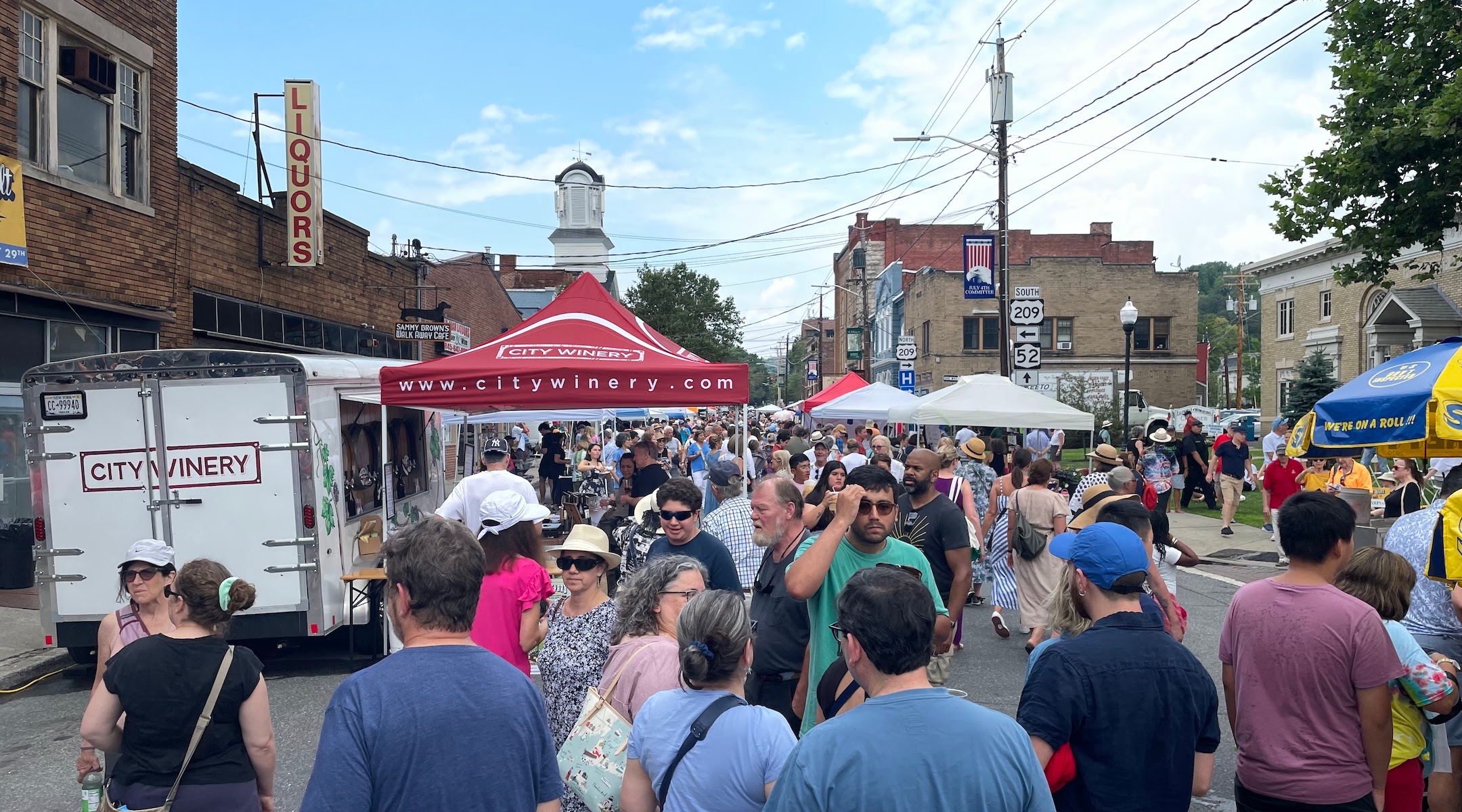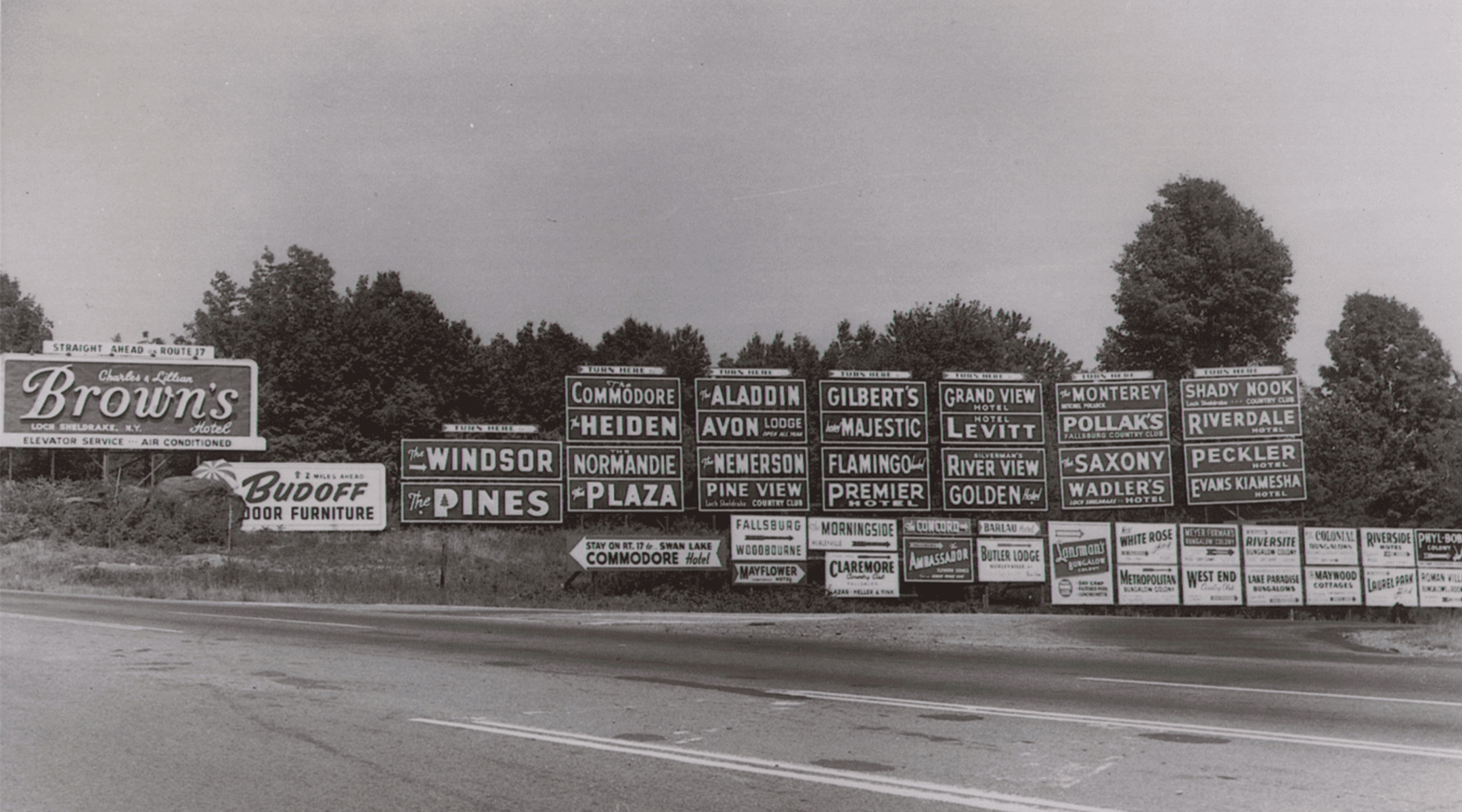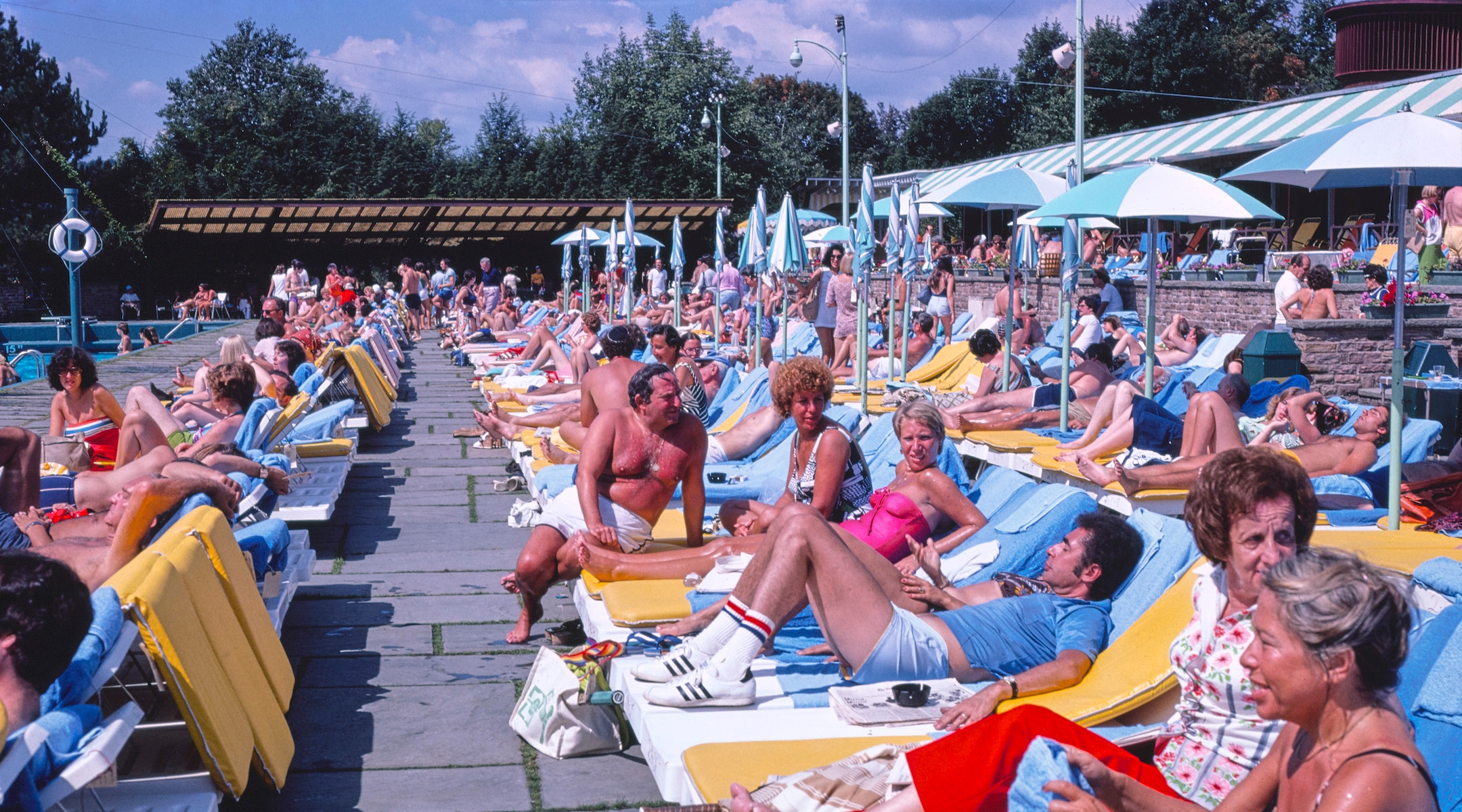The second annual Borscht Belt Fest, featuring comedy, food, music and storytelling, will take place July 26-28 in the Catskills.
Organized by the Borscht Belt Museum in Ellenville, New York, this year’s festival will be “bigger and better” than last year, according to Andrew Jacobs, one of the festival’s organizers and the president of the museum’s board of trustees.
The three-day festival will celebrate the history and culture of the Borscht Belt, the colloquial name for the Catskills region of upstate New York where many mid-20th century Jewish families flocked for summer vacations at bungalow colonies or major resorts like Grossinger’s, Kutsher’s and the Nevele.
Last year’s festival drew a crowd of thousands, Jacobs said. “We were kind of taken aback by how many people came,” he told the New York Jewish Week. “We didn’t really know what to expect and we just didn’t quite realize there was that much appeal out there for something like this.”
This year’s event will be three days instead of one, as it was last summer, and its offerings include 30-plus events, from a Friday-night meal inspired by the 1968 dinner menu at the Waldemere Hotel in Livingston Manor — a sample menu from the hotel that year includes dishes like “roast Philadelphia caponette” and carrot tzimmes — to a range of comedy shows, cabaret performances and tours that delve into the history of the Jewish Catskills, including its outsized influence on American culture.

The Borscht Belt Fest in Ellenville, NY, July 29, 2023. (Caleb Meredith)
Other highlights include an outdoor screening of the 1987 film “Dirty Dancing,” which takes place at a fictitious Catskills resort in 1963, and a discussion with the 1960s radio personality Bruce Morrow, better known as “Cousin Brucie,” who had a small part in the movie. Visitors can also tour the Borscht Belt Museum’s current exhibit, “And Such Small Portions! Food and Comedy in the Catskills Resort Era,” and there will be a Borscht Belt Story Hour, modeled on the Moth Story Hour radio show, where contestants will share five-minute first-person stories connected to the region.
Jacobs said that two major factors drive continual interest in the so-called “Jewish Alps”: nostalgia and community.
“For older people, who experienced the Borscht Belt firsthand, I think it’s sort of a validation of their lived experience — for people who went to the Borscht Belt, it was like magic,” he said. “It was very social, there was a lot of warmth, and people just connected to each other and their culture.”
“In this headlong rush of modernization and assimilation, that’s kind of been lost for a lot of people. For them, the nostalgia factor is huge,” he continued. “For younger people — especially Jews, but not just Jews — there’s a yearning for cohesion and meaning and culture that they never really experienced, but this offers a taste of that and offers the actual community.”

Various signs for the resorts and bungalow colonies in the Borscht Belt. (Borscht Belt Museum)
For Lucie Pohl, a German-American Jewish comedian who is once again bringing her monthly comedy show, “Immigrant Jam,” to the festival, the sense of community is what stood out to her most last year.
“What’s really beautiful about the festival, and what I’ve learned over and over again, is that people want and need community, art, entertainment and storytelling of all different types of forms,” she said. “It is necessary for survival, especially in these times.”
Pohl’s show brings in comedians who are either immigrants themselves or second- or third-generation immigrants, and most aren’t Jewish. Still, she said, the idea of a cross-cultural, fresh-eyed view of the United States is the core of the Borscht’s Belt’s appeal, and she’s excited to share the Borscht Belt history with non-Jewish comedians.
“There are such great comics from all these different backgrounds, people who move here from different countries and start from scratch and write jokes about their experience seeing this city and the people and the culture through their lens. So it’s always very fun,” she said of her show.
The Borscht Belt was famed as an incubator for Jewish comics and actors, many of whom were themselves second-generation Americans. “It’s also exciting for me to bring comics up there to learn about the history of the place, because a lot of comics now, especially not being Jewish, don’t know the history of the Borscht Belt in terms of comedy.”
The mid-20th century Jewish vacationland was also the place to be for many other types of entertainers, including the “Simon Says” master Lou Goldstein, painter Morris Katz — who could create an original work in a matter of minutes in a method he called “Instant Art” — and singers and actors like Eddie Fisher.
This year’s festival will include several music performances, including a Borscht Belt history tribute cabaret show that will explain the history of the region to a soundtrack of classic Yiddish and Jewish songs.
“Comedians are kind of this well-trod territory, but the music really isn’t,” Gideon Evans, a producer and writer of the cabaret show, titled “Borscht Belt Serenade,” told the New York Jewish Week. “There were so many amazing musicians that performed, and singers and songwriters that hung out there and performed up there, and this is like a great opportunity to do some favorite songs — some big songs, but also some more obscure songs.
He added: “If you don’t celebrate and remember these things, they can die off in the same way people can die off.”
“It is such a privilege to be able to be a vessel, in some way, to transport these songs from the past into the present and to connect to the great people who are famous for performing them,” Jill Abramovitz, who co-wrote the show and will perform it.
“It also feels a little bit like an obligation,” she added. “It’s like passing forward prayers. It’s not religious — but it is religious for some of us Jews, whose culture and religion are so bound up. Singing a song made famous by Fanny Brice or Eddie Cantor does have an auspiciousness associated with it.”
Jacobs noted that the festival and museum’s aim of acknowledging the Borscht Belt’s influence on both Jewish history and American life felt especially necessary in 2024.
“There’s a real value in reminding Americans about the really pivotal role that Jews have played in the evolution of mainstream American culture, from food and comedy to mid-century design and entertainment in general,” he said. “That’s a really happy, positive story to tell. Especially in the very dark time that we’re in — both because of Oct. 7, and also just our American political reality: It’s a really bright light in a dark time that’s about Jewish joy.”
The Borscht Belt Fest will take place in Ellenville, New York on July 26-28. To see the lineup and get tickets for the 30-plus events, click here.
Hungry for more Borscht Belt nostalgia? Don’t miss our upcoming weekly class, “Borscht Belt and Beyond: The Lasting Legacy of the Jewish Catskills,” taught by our very own Andrew Silow-Carroll beginning Tues., August 20. Get the details here.
The New York Jewish Week brings you the stories behind the headlines, keeping you connected to Jewish life in New York. Help sustain the reporting you trust by donating today.





